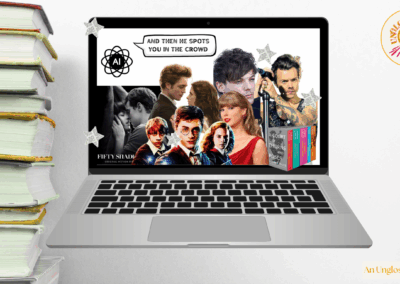Is it really intellectual peacocking? Why we can’t we read the books we enjoy without fear of judgement, and how it might be worse for men.
Scroll through TikTok or Instagram and you’ll find countless variations of ‘hot men reading’, whether that’s on the subway in New York or a bench in Hampstead Heath. It’s usually something highbrow and hefty, a dog-eared copy of Crime and Punishment or maybe it’s Giovanni’s Room carefully placed, sticking out the top of a Daunt Books tote bag. The joke? That men reading in public places is about signalling their intelligence and desirability like some kind of animal kingdom style mating call. So why do we reduce men’s reading habits to a performance?
The idea that men use books as a social capital isn’t anything new, ‘serious literature’ has historically been linked to more male areas of reading, but the digital culture we live in now seems to have added to this. Dr Tom Chatfield, author and expert in digital culture, says: “Status has long been bound up with reading, along with various kinds of snobbery. But digital platforms have applied a kind of amplifier to human nature and social trends. Curating your public image means making books grist to the mills of image and reputation, and in this sense it’s bound up with norms and debates around gender, authority and desire.”
When men are mocked for performative reading on social media, the underlying assumption is that they’re not genuinely engaged with the ideas. The result seems to be a pressure being put onto people to conform to reading that fits a certain ‘gender’.
BookToker, Josh Ford, has loved reading since he can remember. His passion started when he was young and his mum would read to him, and it’s only grown since. In fact, he loves reading and the reading world so much that he created his account back in January 2024, and in just over a year he’s gained over 25 thousand followers. He posts about the latest books he’s read and recommends but often focuses his account on the fantasy and romantasy genres. These kinds of books are massively popular on TikTok, with series like A Court Of Thorns and Roses dominating TikTok reading charts.
Josh explains that whilst there are performative reading jokes online, the BookTok community is a force for good. A real feeling of community goes even further than just book recommendations in this online sphere. “Before I started an account, I went to TikTok and YouTube to try to find book recommendations, so I always knew people were going to enjoy just having a recommendation there. But then I started to branch out more into trying to do funnier videos and people still enjoyed it. For me that was really cool because they’re liking me for me. You’re not just liking me because I have book recommendations. So that was the main thing for me and also giving me confidence.”
Whilst BookTok is such a positive place of acceptance he has gotten the odd comment from people who just can’t understand why he spends his time on books that are deemed by some to be feminine, “Sometimes when you get comments like that you are thinking, should I be reading non-fiction? Am I wasting my time reading books like this where I could be learning more about the world by reading non-fiction? And it is a thing that niggles in your head.”
Despite the few people who aren’t as positive about men reading certain genres of books, the BookTok landscape is one that allows freedom and creativity to thrive, bringing like minded people together in spaces both online and in real life. Josh has cherished the opportunities that his BookTok and his BookTok following has given him, like attending book events in London.
Even though Josh isn’t necessarily reading those stereotypically highbrow and intellectual books, or showing that he is online at least, he’s still had performative reading accusations because he’s a man who reads. One particular TikTok he made in which he joked about dating and finding someone who accepted his love for ‘romantasy’ meant some people thought he was being disingenuous: “It was just me speaking about something that is a genuine worry in a lighthearted way. What might someone think of me reading more ‘feminine’ books? I definitely had a lot of messages and comments saying I was just doing it for attention but I wasn’t.”
These gendered restrictions have, at times, made him rethink reading habits: “Sometimes I’ll take it books out to cafes, often it’s romantacy book, and I’ll take the sleeve off and just have the plain back cover there just because sometimes it feels embarrassing. It shouldn’t be like that, but unfortunately, that’s the case because some people are still negative about it.”
Josh is looking forward to seeing a more diverse book landscape in the future, “The publishers need to be a bit more diverse in their publications as well.” BookTok does a great job of pushing out a variety of different kinds of genres and authors, giving attention to some that might not have become as mainstream otherwise. While he acknowledges that the trend of performative reading can sometimes have negative consequences, he also sees the overall rise in book discussions as a positive shift. “The more talking we get about the books in the industry and the more emphasis we get towards people being published, that can only be a good thing. Again, I think that the performative reading side still needs work. I think it still leaves a lot of negative connotations in terms of sexualization of genders or not as diverse as they should be.”
Ultimately, to Josh, and indeed many others in the BookTok community, books shouldn’t feel gendered. You can read Romantacy if you want to, you can also read Dostoevsky if you want to. And if you’re looking for a place for book recommendations based on what you like and not based on your gender, look no further than BookTok.
To Dr Chatfield this signals that there’s something more serious and deep rooted than the performative reading joke that translates to life offline: “There’s a painful truth in the idea of “intelligence” as a public performance rather than a private aspiration, but the most odious forms of this happen far away from jokes about books, via deadly earnest performances of hyper-productivity, masculinity, leadership prowess, and so on.”
If we want to break free from harmful and rigid gender stereotypes, we need to stop treating books as gendered objects. In 2025, men should feel comfortable to read romance or to read those ‘intellectual’ books without being accused of a performative motivation. Chatfield supports this by stripping back to basics of what book lovers are: “I’m broadly a fan of anything that normalizes fun and fandom and engagement with writing while, like many writers, I’m suspicious of carving reading into categories like “frivolous” and “serious”. To be serious about reading is to read widely, passionately, eclectically, for the love and curiosity of encountering others’ words. But it’s not to stick labels on books, or fellow readers.”
Yes, clearly the performative reading joke seems to perpetuate a lot of harmful stereotypes that put men who read into boxes but, it’s not all negative. Dr Chatfield thinks the underlying view that the performative reading joke is funny because people find reading attractive is a positive thing. “It’s as much cheering as it is worrying. People are making jokes about books, and about the fact that reading interesting books is an attractive trait! On some level, this acknowledges the power of writing even while it picks apart shallow pretensions. You don’t make a joke like this about something trivial that nobody cares about. And you don’t share it unless you’re smiling wryly at its perceptiveness.”
In the end, reading, like any other habit, shouldn’t be a battleground for gendered expectations. The line between performance and authenticity continues to blur online, but next time you see someone reading a book in public, try not to think about what statement they’re trying to make. Instead, just let it be what it is. Someone enjoying a book.












